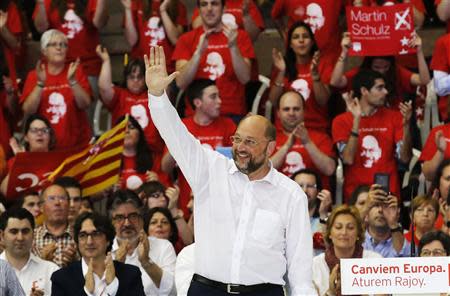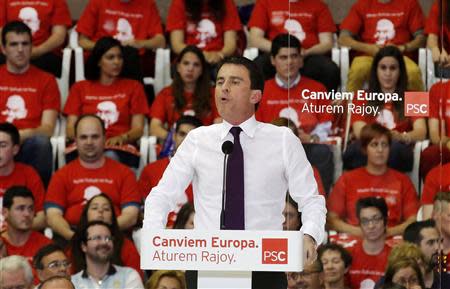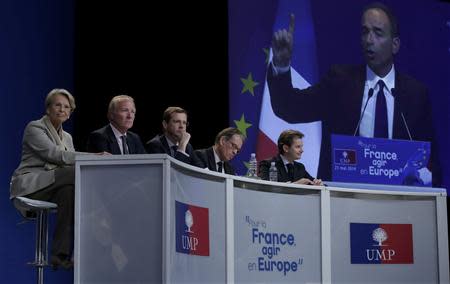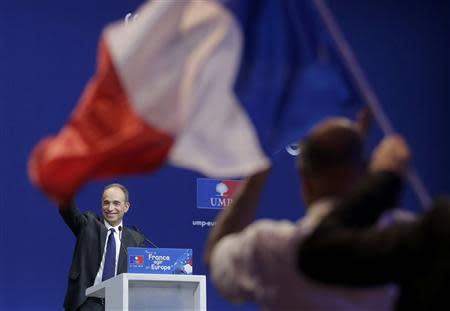Polls show rise for far-right as EU votes
By Luke Baker BRUSSELS (Reuters) - Europe's election marathon kicks off on Thursday as polls open in Britain and the Netherlands, where far-right, anti-EU parties are forecast to top the ballot, spearheading a surge in protest-voting across the continent. After two months of campaigning that opinion polls suggest has largely failed to inspire the electorate, up to 380 million Europeans will vote in 28 countries, choosing 751 deputies to represent them in the European Parliament. With Europe struggling to recover from economic crisis, including record-high unemployment and negligible growth, the election is expected to produce a surge in support for Euroskeptic parties on both the far-right and left. In Britain, the UK Independence Party, which wants tighter immigration controls and to withdraw from the EU, is predicted to win the vote, pushing the governing Conservatives into third place behind Labour, according to opinion polls. A similar story is expected in the Netherlands, where the anti-Islam and anti-EU Freedom Party - which plans to forge an alliance with France's far-right National Front - is expected to win with up to 23 percent of the vote. The Netherlands will release exit polls on Thursday evening, but Britain will only announce its results late on Sunday, once voting has finished in all EU member states. Consolidated results, including the allotment of seats in the parliament, will be announced at around 5.00 p.m. ET on Sunday. The bulk of countries will vote on May 25, when the trend towards the political extremes may become clearer, particularly in France, Denmark, Hungary, Italy and Sweden. On the last day of campaigning, Jean-Claude Juncker, the top candidate for Europe's center-right political group, urged people to vote, but not to throw their votes away. "Do not give your votes to extremist xenophobes or fascists," he said at a rally in Brussels. "If you want Europe to function and to serve its citizens, we should vote for people who will work hard in the next European Parliament." LOW TURNOUT FAVOURS EXTREMES Since the first direct elections to the European Parliament were held in 1979, turnout has fallen every time, dropping to 43 percent in 2009. That is expected to continue, falling to around 40 percent this year, pollsters say, a factor that will tend to boost the vote for radical parties. That said, Europe's mainstream political groups - the center-right European People's Party, the center-left Socialists & Democrats, the liberal ALDE alliance and the Greens - are together expected to secure 70 percent of the vote, leaving them as a driving force in Europe as long as they work together. While the European Parliament has in the past been derided as a toothless talking shop, it has gained relevance since the passage of the Lisbon Treaty in 2009 and now enjoys 'co-decision' powers with member states over most legislation. For the first time, parliament has also backed the idea that each group should have a "Spitzenkandidat" - German for "top candidate" - who is in line to become president of the European Commission should their group win the elections. While supporters of the process are adamant it should be used to determine who succeeds Jose Manuel Barroso as Commission president, one of Brussels' most influential jobs, EU leaders are ultimately responsible for putting forward a name. According to the Lisbon Treaty, they must "take into account" the election results in making the nomination, and that person must then be approved by a majority in parliament. If EU leaders and parliament cannot agree on the candidate, there is the risk of an institutional impasse in Brussels, which could have long-term repercussions on confidence in the EU among already disillusioned voters and financial markets. Parliamentary leaders will meet on the morning of May 27 to assess the outcome of the elections, and EU heads of state and government will do the same over dinner the same day. But there is not expected to be any clarity on the nominee for Commission president until later in June, EU officials say. (Additional reporting by John O'Donnell and Julia Fioretti; Writing by Luke Baker; Editing by Giles Elgood)





